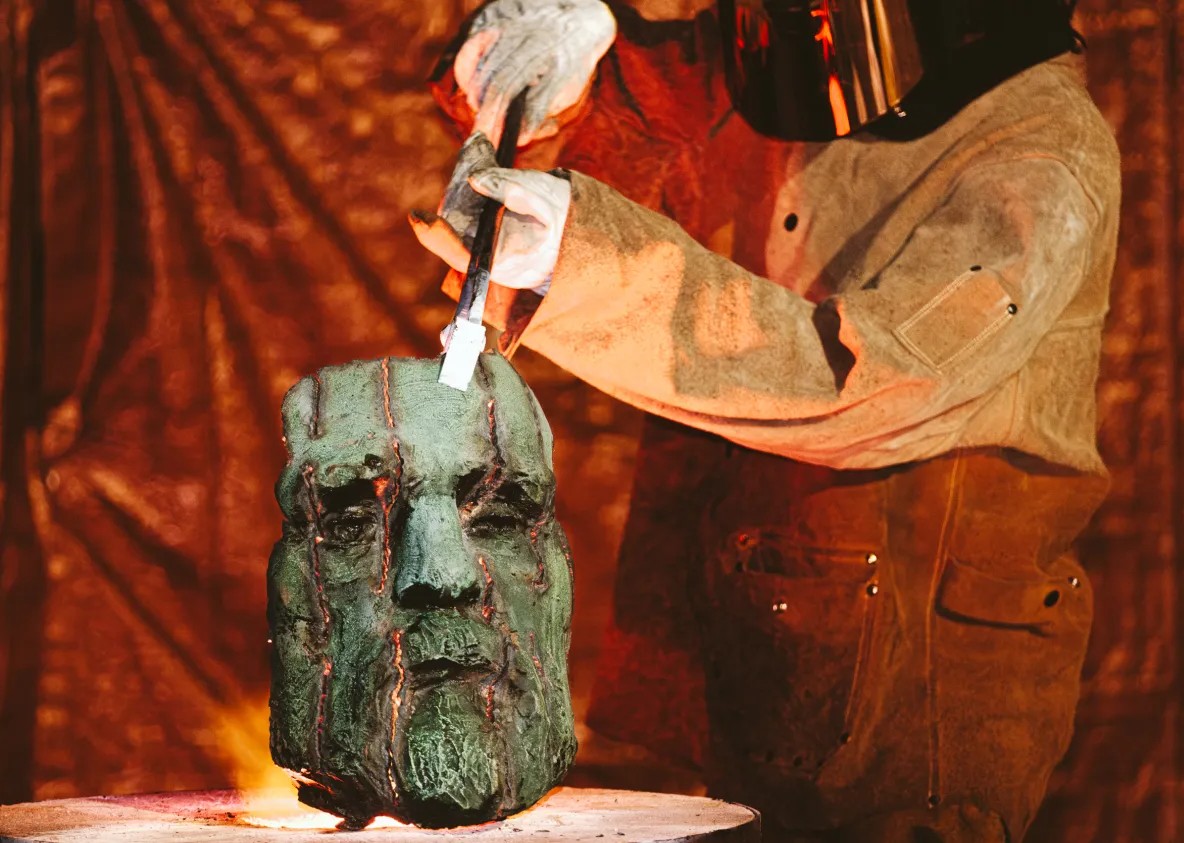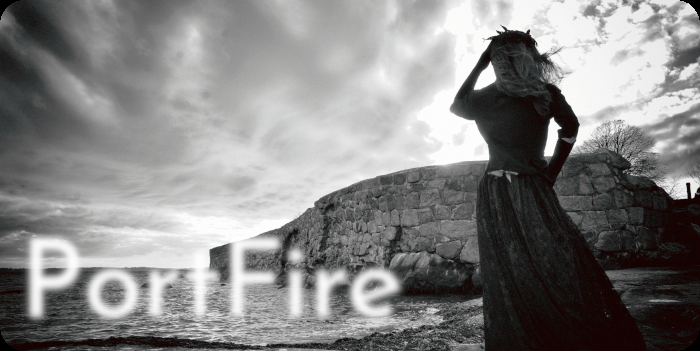
A monument to General Robert E. Lee formerly stood in Charlottesville, Virginia. As part of the “Swords Into Plowshares” project, the statue was melted down. Artists will use the metal to make new public artwork. Photo by Eze Amos.
One example of me playing the fool: I’ve spent far too much precious time fighting with Lost Causers on Twitter.
Twitter became an outlet for me during the lockdown, something I could do on the clock while stuck at home. I started playing around on the platform, using the account of my then employer, the tiny Institute for International Law & Justice at NYU. I began by promoting our events and publications, and within months our account was up from a handful of subscribers to 11K. I’m proud of this, and I have a hard time feeling proud of anything.
Before Elon Musk ruined it, International Law Twitter was exciting. It disrupted the elite gatekeeping of the field and transformed scholarly communication, while new intellectual networks coalesced, especially in the Global South. By osmosis, I knew enough about International Law to help connect scholars, not as another expert but as a supporter, like a fan cheering on a team: Go International Law!
Of course home and life and work and play were all mushed up together during the lockdown. I became a little loopy from the isolation. I started scratching at my skin and pulling my hair out again. I started drinking too much. The Law School’s Office of Communications chastised me for making a joke @ the BBC Twitter account about The Young Ones. [It was a funny joke and I stand by it.] So I moved over to my personal account, to make my jokes over there instead.
Next I insulted a Lost Causer, or a Lost Causer insulted me, and they figured out who I was, and my connection to Ben Cooter Jones, one of their heroes. Then I was swept up into the ongoing Twitter Civil War, on the side of the Union of course, where I met many brilliant people with encyclopedic knowledge of the conflict such as Brooks Simpson.
The Union historians waged intellectual battles, and I reveled in seeing them take Lost Causers down with facts and logic. I waged battles of mockery. I’ve developed a thick skin, after years as a New Yorker, and I’m not afraid of sparring with people. I discovered a talent for infuriating Those Still Fighting the Northern War of Aggression Online.
Lost Causers on Twitter are trolls for the most part, who hold misogynist, racist, and other repugnant views, and who insist on inflicting those views on others. A very few are deluded but polite, and they try to rein in the others from calling me a bitch, slut, tramp, whore etc. I’ve given polite ones a chance, hoping our interactions might influence their views on things Confederate.
***
According to intermediaries, my father’s last straw with me was Twitter. His version of our estrangement boils down to, “Rachel talked ugly about me on social media.” I was honest. I spoke openly about things that happened between us, things he hoped I would never talk about, let alone on Twitter. I don’t feel guilty. If he wanted me to sing his praises, he should have treated me better. He should have told wife #5 Alma to retract her claws rather than ignore her constant cattiness. I asked him to engage in family therapy with me, and he never responded. So our relationship is over, by his choice, and yes, I processed some feelings about that online.
He (and Alma, because they work in tandem) responded on his social media accounts by claiming that he doesn’t believe in “putting family business on the street.” This last statement is so typical of my father’s hypocrisy about what he is allowed to do and what I am allowed to do. He published a memoir, which he still sells through his stores, and in the process revealed many family secrets to his fan base. But I’m expected to never talk about anything that happened between us, or our history? What about my freedom of speech?
Twitter, according to my father, is the ruination of our relationship. According to me, it is a forum where I made some necessary noise. Yes, I went public about what my relationship with my dad was like: awful in some ways, wonderful in others. I was only ever allowed to be his biggest fan; anything else merited punishment in one form or another. His profound narcissism was nearly the end of me, and I have a right to talk about that.
Complete strangers know all about my daddy issues. But I said what I said and I meant it. I know my father and his wife hate me now; I don’t hate them, but I do hate their politics. I also hate Elon’s politics, so I’ve mostly moved over to Blue Sky.
***
Everything has changed since the lockdown. Whatever remaining democracy and social safety nets we have are being destroyed. Things are so much worse than I thought they would be. Another example of my foolishness: I hoped things would get better after Trump’s first presidency, and I didn’t think there would be a second.
I live and work in Brooklyn, an oasis for artists, lefties, queers, and weirdos like me. I spend a lot of time, when not fighting the Civil War online, organizing with groups for various causes. I’m currently involved with one that provides reference services by mail to incarcerated people, and another that advocates for our public libraries.
People sometimes ask why I work on prison issues. It is because of my father. He’s always had a terrible temper, and when he was drinking, he was out of control and dangerous. Some of my earliest memories are of watching him being arrested for domestic violence. My mother and I both have PTSD from our brief time together with him as a family. It took me a long time to understand just how bad things were, just how detrimental he was to my development. I grew up feeling like damaged goods.
Because of his narcissism, which was exacerbated by his celebrity, my father felt entitled to my complete obedience. He gave me a running critique on how well I was meeting his expectations. He had a lot of opinions about how good daughters behave—docile, loyal, sweet—and about how bad daughters behave—bratty, neurotic, selfish. He often told me that I needed to put family first, meaning him first. Filial piety was a constant theme. According to him, it was the foundation of our Southern culture. Convenient, no?
After I hit puberty, he had additional expectations ready for me. For “our” public image, I needed to lose weight and get in shape. I also needed to be more bubbly and outgoing, while getting straight As of course. I responded to these expectations by dying my hair bright red and going Goth during his first Congressional campaign. [Good for me!] I also became bulimic and developed OCD symptoms of dermatillomania and trichotillomania. I was rebelling; I was under too much pressure.
I felt trapped by him, because he would insist on custody visits and hold child support over my head, so I resorted to self-destruction to get away from him. After my suicide attempt, I was locked up on a psych ward at Yale-New Haven Hospital with other angry and sad teenagers. The hospital reached out to him about family therapy. He refused and scoffed at my diagnosis. He said I wasn’t depressed, just spoiled. He had a Congressional campaign to win, and a suicidal daughter was not a helpful asset.
